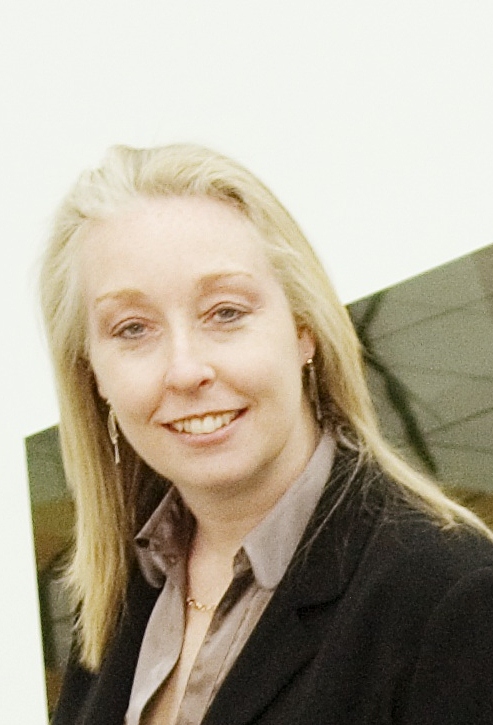We’ve talked about the first and second generation CDO’s so what next? We have all heard that the CDO role is just a gimmick that companies are being sold, that won’t actually help them in any way, or that once we have all the data organised then there isn’t a need for a CDO anymore and the position will fade away into that chief position sunset in the sky. Leaving us back with the more traditional roles making up the C-suite.

 Caroline Carruthers, Chief Data Officer, Network Rail & Peter Jackson, Head of Data,The Pensions Regulator. This is one article in a series of articles written by Caroline and Peter – you can view the articles here.
Caroline Carruthers, Chief Data Officer, Network Rail & Peter Jackson, Head of Data,The Pensions Regulator. This is one article in a series of articles written by Caroline and Peter – you can view the articles here.
Peter will be presenting a workshop at our Data Governance Conference Europe 2017, 15-18 May, London titled: Creating a Data Governance Framework that Promotes Innovation and the Creative Use of Data
On 17 May 2017 IRM UK will be running our CDO Executive Forum Europe 2017 in London – for more information and to apply to attend click here Peter will be attending this Forum.
While this is a nice neat ending – it’s always great to have something come full circle, identify a need, solve the problem and everyone go home, we don’t believe that this is as simple as that.
It feels at times as if data is a living breathing organism which constantly morphs and seems to follow the laws of evolution. To run with the analogy, it is the business which is the organism and the data is the lifeblood that runs within it making sure everything works the way it is supposed to. Nothing, literally nothing, works in a company without the input of data in some shape or form.
If the first generation CDO takes this data and makes it trustworthy and relevant, and the second generation derives the value from it; what would a third generation or beyond have to do or do we just stick at a second generation or assume companies can cope on their own now.
In previous articles we have talked about the ever increasing problem that is data; estimates are that 85% of the data we collect is irrelevant, or should be deleted, and could be wasting companies over 3.3 Trillion dollars every year. So even when you get something that big under control, do you expect it to stay in the nice little box we put it in? Honestly we can’t see it. Data wouldn’t have become such a problem in the first place if the business were capable of dealing with it on its own (and we are taking a liberty here of assuming it couldn’t, some smaller organisations who managed their own data effectively won’t need a CDO, that part comes down to business strategy). The CDO position arose from a genuine enterprise level business need so we think we will see larger complex businesses needing a CDO in some shape or form going forward.
It is that ‘shape or form’ which we believe is up for debate. Now, it would easy at this point to say something glib like ‘we never know what the future holds’ and while there is always truth in that statement, we are supposed to be the pioneers in this area so for us to just hold our hands up and say we haven’t got a clue feels cowardly.
Bear with us a whilst we skip around a little bit, but there are lots of prediction about how many CDOs will be seen as failures (approx. 50% depending on who you ask) and that ties in with the point we are talking about. There will be lots of reasons for this failure, round pegs in square holds, culture clashes, competing demands etc. one reason which will make up the list is the same reason that many big programmes fail, companies don’t have a clear idea of what they want the CDO to do. They might have a really clear idea of what they don’t want to happen anymore – data failures, wasting money, safety critical decisions not being made but few have a clear idea of what the utopian data future will bring.
Since they don’t know what they want, the CDO becomes a bit of a hot potato, where do they put this new person? Under the CIO, direct to the CEO or any other myriad of places?
By the time of the third generation CDO this will be more normalised across organisations, the successful first and second generation CDOs will lead the way and as companies learn what works and what doesn’t, the role becomes less pioneering and more established.
First and second generation CDOs are currently leading the way and figuring out the solutions as they go, whilst we are not saying they aren’t professional, by the third generation the role is professionalised. Data and Information Management will be a recognised discipline in the way that Project Management or architecture are with its own certifications adding to the professionalism of the sector.
As the role changes, so the CDO’s must change too.
A closing thought: the first and second generation CDO’s that are part of the successful 50%, will become the data heroes. Some of these will have the potential to move on into other C-suite roles such as COO and CEO because they blend the data skills and business skills, are capable of strategic thinking and can win hearts and minds of organisations.
Caroline Carruthers is Network Rail’s first Chief Data Officer, Network Rail runs, maintains and develops Britain’s rail infrastructure where information and data management is a critical capability within this highly complex environment. She has established a small core team operating with a larger matrix team drawing together Information Governance, Information Security, Data Protection, Freedom of Information, Records Management and Business Intelligence to deliver the vision of effective, accountable and sustainable management of information across Network Rail. She draws on experience from a varied background covering CIO/CTO roles through to running large scale complex change programmes. It was the recognition that ‘everything we do is fueled by data and information’ that drove Caroline down the CDO route and she regularly describes herself as a Data Cheerleader.
Peter Jackson is Head of Data at The Pensions Regulator (TPR), a new post tasked with developing and delivering a data strategy for the organisation which regulates the pensions and automatic enrolment in the UK. An integral part of the data strategy is data governance. Before joining TPR Peter spent 17 years providing Data Strategy consultancy across the not for profit sector, financial services and FMCG working with large multi-national organisations and blue chip brands.


